When LEGAL
DRUGS KILL
250,000
People Die Every Year because of doctors!
100,000
People Die Every Year Just from the
Drugs Alone!

By Claudia Kalb |
NEWSWEEK
It was to have been Jerry and Mary Sagen's
first New Year's Eve together as a married couple. But on that morning in
1996, says Jerry Sagen, "I awoke to hear her dying." As Mary gasped her last
breaths, Jerry dialed 911 and frantically blew air into her lungs, but it
was too late. At first the death of the healthy 45-year-old woman was a
mystery. But 1st month an answer was stamped onto Mary's death certificate:
accidental death due to a toxic level of the antihistamine Hismanal. (While
not commenting on the case, Janssen Pharmaceutical, the maker of Hismanal,
said it is difficult to confirm a drug as the ultimate cause of death and
stressed that "it's been taken safely by a huge number of people.") For
Jerry Sagen, 53, it was unfathomable. "You're numb," he says; "you can't
believe it happened."
Doctors are the Third Leading Cause of Death
in the U.S.
Drug
Reactions Linked to 100,000 Deaths!!!
New
Freedom Initiative (forced
drugging)
Cancer Profit |
Doctor Caused Disease!
Billion Dollar Drug Scam
Mandatory Toxic Drugs
for Babies and Children
Human Guinea
Pigs for Dangerous Drugs!
PHARMAKEIA: Sorcery, Witchcraft, Pharmaceuticals, Pharmacy
Part 1
| 2 |
3 |
4 |
5 |
6 |
7

For millions of Americans, prescription drugs are a way of life - about 2
billion are dispensed each year. We rely on them for everything from allergies
to diabetes to depression. But in a study published last week in The Journal of
the American Medical Association, researchers found that adverse reactions to
prescription drugs may rank somewhere between the fourth and sixth leading cause
of death in the United States. Dr. Bruce Pomeranz, a professor at the University
of Toronto, and his team analyzed 39 studies conducted in American hospitals
over four decades (the study was funded by a scientific-research group). Of 33
million patients admitted to hospitals in 1994, more than 100,000 died from
toxic reactions to medications that were administered properly, either before or
after they were hospitalized. And more than 2 million suffered serious side
effects.
How Safe Are Drugs?
Medical Errors - A Leading
Cause of Death!
Children Forced to have Mental-Screening!
No Child Left Unmedicated
DCFS
Monsters! (You could be next!)
Fight Mental Health Screening
for Children (more drugs)
Drugs by nature are powerful substances, and individual responses are
unpredictable. While the study didn't look at specific drugs, it has been
documented that antihistamines, in combination with the wrong antibiotic, can
lead to abnormal heart rhythms; in rare instances the result can be fatal. (Mary
Sagen was taking an antibiotic with the Hismanal, though that combination has
not been linked to her death). Mixing drugs isn't the only problem. Blood
thinners alone, for example, can cause fatal internal hemorrhaging. "We
have to realize drugs are not magic bullets," says Pomeranz. "They
don't just hit the tissue we want them to hit, they hit all the other tissues as
well."
He and others say the Food and Drug Administration must work harder to
address the problem. Though the FDA has been lauded for a much-needed increase
in the number of new drugs it approves each year (a record 46 in 1996), critics
say it hasn't done enough to monitor medications once they're on the market. The
FDA requests reports on adverse drug reactions from hospitals and physicians,
but few participate in this voluntary program. Information that might warn of -
or perhaps even ward off - side effects is buried in doctors' offices and
hospital wards. "It's the best FDA system in the world, but it's not
enough," says Pomeranz. "We need more post-market surveillance."
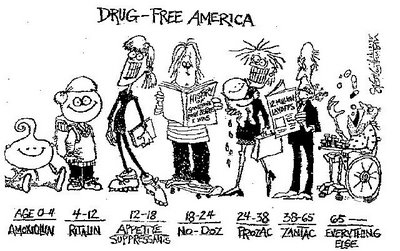
The FDA says it hopes to soon launch a computerized system that will make it
easier to report adverse drug reactions. Monitoring medications is
"terribly important," says Michael Friedman, the FDA's acting
commissioner. "We want to give more attention to this." But
surveillance isn't the FDA's dominion alone. "I see problems at every link
of the safety chain," says Thomas Moore, a senior fellow at the George
Washington University Medical Center and author of "Prescription for
Disaster." He says physicians need to be much more cautious about the drugs
- and drug combinations - they prescribe. And patients need to become wiser
consumers. While the Pomeranz study didn't deal with patients who misread or
disregard warning labels - taking an incorrect dosage, for example - that is a
serious cause of adverse reactions.
Some experts raised concerns about last week's study, noting that the
hospitals surveyed were all teaching hospitals, where patients are sickest and
receive the most drugs. And while 100,000 deaths is 100,000 too many, those
represent just .32 percent of hospitalized patients. "When you realize how
many drugs we use," said Dr. Lucian Leape of the Harvard School of Public
Health, "maybe those numbers aren't so bad after all." Pomeranz isn't
warning people to stay away from drugs. "That would be a terrible
message," he says. "But we should increase our vigilance." That's
a prescription everybody can live with.
SOURCE: Reprinted from the 27 April, 1998, issue of Newsweek
magazine. Excerpted in the public service of the national interest of the
American people.
END

Listen To Alex Jones Expose Evil Scientific Tyranny!
How
safe are prescription drugs?
In 1998 an extensive study published in the
reputable Journal of the American Medical Association (JAMA) showed that
106,000 people die each year in American hospitals from medication side
effects (4).
Let's look at this statistic a different way:
106,000 deaths a year averages out to nearly 300 deaths per day, every day.
Deaths from all major airline crashes in the U.S. average less than 300
annually, but 1 airplane crash gets more media attention and governmental
scrutiny than the 300 medication-related deaths which occurred not only on
the same day as the airline crash, but also every day before and after for
decades.
Why has this epidemic of side effects gone
unrecognized? Deaths from medication reactions rarely look any different
from natural deaths. There's no visible wreckage to videotape, no crash
sites to fascinate and horrify TV viewers. As media people say, 'No film, no
story'. Media and public relations firms, and how they shape the public's
awareness, are discussed in more detail
here.
Medication deaths often occur quietly in
hospitals, emergency rooms and private homes. When medication-related deaths
occur, it's often unclear at first whether the cause was the medication, the
illness, or some other factor. In other words, to much of the media, there
is nothing sexy about side effects.
The reported adverse effects of drugs are only
the tip of the iceberg. Consider 'Digoxin', the best-selling heart drug.
According to an article in JAMA, the Food and Drug Administration (FDA)
receives about 82 reports each year involving Digoxin, yet a systematic
study of Medicare records reveals 202,211 hospitalizations for Digoxin
adverse effects in a 7-year period (5). That's more than 28,000 reactions
per year, 82 of which the Food and Drug Administration (FDA) hears about.
Read about 10 prescription drugs withdrawn from
the market since 1997, after being used by millions of people, on
page 2 of this article.
SOURCE:
Drugs companies
Prescription
Drugs Can Be Deadly
Celebrity prescription drug abuse
is on the rise. When mixed with booze, prescription drugs are deadly. Singer
Whitney Houston was found dead in her bathtub on February 11, 2012 in
Hollywood, California. She was only 48 years old. She had been out wild
partying with her 18-year-old daughter the night before her death.
Alcohol by very definition is a narcotic drug. The biggest hypocrisy of our
time is to teach young people to 'say no to drugs,' while parents drink
case-after-case of booze (which is as much a drug as cocaine or heroine). It
appears that alcohol combined with sleeping pills led to Houston's death. it
is very dangerous to combine prescription medications with alcohol,
especially while resting in a full bathtub. Once the medications knock you
out, that's it for at least 8 to 12 hours!
I take prescription drugs for
pain, peripheral neuropathy and to sleep. I've taken so many drugs over the
years: Ambien, Soma, Flexeril, Ativan, Valium, Methadone, Gabapentin,
Lyrica, Vicodin, Percodan, Percocet, Oxycontin, Skelaxin, Robaxin, Zanex,
Elavil, Klonopin, Morphine Sulfate, Dilaudid, Fentanyl Patch, Ibuprofen,
Endocet, Norco, Roxicet, Zoloft, Zantec, Roserem and a bunch more that I
cannot remember. I'm not kidding, I've been prescribed all of these drugs
over the past 8-years. So I know what I'm talking about. Thankfully I've
never drank alcohol, but NyQuil can be almost as dangerous when combined
with pills. So be careful.
Taking a handful of prescription
drugs at the same time can be deadly. People get used to taking a certain
amount and it's very easy to increase that amount incrementally until your
mind tricks you into taking a lethal amount. I've come close. I've suffered
many horrible side-effects and eventually stopped taking most of of my
prescription medications (or they didn't work). As of February 2012 I take
160 mg. daily of Oxycontin for pain, 300 mg. of Lyrica for my Peripheral
Neuropathy, and 10 mg. of Ambien to sleep at night. I don't like taking any
drugs, but I am a basket-case of pain, burning, tingling throughout my body
without them. Thank God for medications!
Every year,
over 100,000
Americans die from prescription drugs (not from taking too much drugs,
but from the medications themselves). It's a bad situation to be in, but if
you've ever suffered from a physical ailment, then you understand the need
for medication. I have been afflicted since march of 2004 with horrible
toothache-like pain in back of my neck. It is debilitating. I have chronic
tightness and tension in the same area, but it's the nerve and not the
muscles (as evidenced by an EEG needle test).
Nearly every prescription drug
comes with a warning about consuming alcohol with it. I've noticed that it's
usually a COMBINATION of prescription drugs that kill people (often mixed
with alcohol or illegal drugs).
Numerous celebrities have died from combining prescription drugs. In
Whitney Houston's situation, she lived a lifestyle of boozing and illegal
drugs which likely contributed to her untimely death. She had been out
heavily-boozing the night before her death.
Famous Actor Heath Ledger died
from a prescription overdose in February of 2008. What the mainstream
newsmedia didn't tell anyone is that Ledger wasn't prescribed the drugs that
killed him. Mary-Kate Olsen knows, but she won't talk to federal
investigators without being given legal immunity. What good is an
investigation if the one person who knows what happened wants immunity? If
convicted of giving the Oxycontin to Ledger, Olsen could face life in
prison. I don't blame her for refusing to talk. Federal penalties are just
as harsh for prescription drug-trafficking as they are for illegal drugs.
There is much debate over whether
illegal drugs should be made legal. Argue as you may, in places like
Amsterdam, Holland (where drugs are legal) there are less instances of drug
abuse and drug-related deaths. My opinion is that drugs never should have
been outlawed because it's not the government's business to tell us what we
can put into our mouths. I think trafficking drugs should be illegal as a
business, but I think if people want to grow marijuana or opium and ingest
it, that's their own business. The government needs to step in when
criminals try to profit from the sale of drugs that are harmful to society;
but in today's reality the
CIA, ATF and FBI are the criminals who traffic the drugs into America.
America is a cesspool of
iniquity,. The Bible promises that every secret thing will one day be
revealed in eternity on Judgment Day. Luke 8:17, “For nothing is secret,
that shall not be made manifest; neither any thing hid, that shall not be
known and come abroad.” Ecclesiastes 12:14, “For God shall bring
every work into judgment, with every secret thing, whether it be good, or
whether it be evil.” One day we're all going to find out who's who.
There are some very evil people in today's world, people who will do
anything for money and the Devil. God knows those who are His, who belong to
Christ, who one day we will shine as the brightness of the stars for turning
many to the righteousness of Jesus Christ to be saved (Daniel 12:2-3; Romans
4:5-6; Matthew 6:33; 2nd Corinthians 5:21). END
Aborted Fetus Material is Being Put into Vaccines!


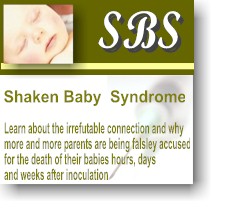

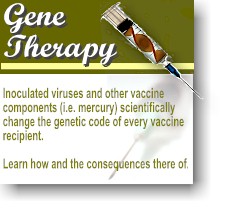


“When we give government the power to make
medical decisions for us,
we, in essence, accept that the state owns our bodies.”
~U.S. Representative Ron Paul, MD
VACCINE INDUCED
DISEASE SYNDROME
He Who Pays the Piper
—Creation of the
Modern Medical (Drug) Establishment
by Professor G. Edward Griffin
-
drug-oriented
“medicine” gets all the
financial support because it has the largest profit potential
-
The low state of medical education in the U.S.
prior to 1910
-
the importance of the Flexner Report in
dramatizing the need for reform
-
the role played by the Rockefeller and
Carnegie foundations in implementing the Flexner Report
-
the use of foundation funding as a means of
gaining control over American medical schools
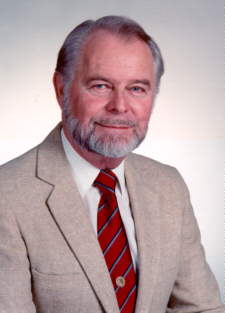 This is taken from
Chapter XVIII of G. Edward Griffin's book,
World Without Cancer: The Story of Vitamin B17)
This is taken from
Chapter XVIII of G. Edward Griffin's book,
World Without Cancer: The Story of Vitamin B17)
There is an old
saying: “He who pays the piper, calls the tune.” This is one of those eternal truths that exist - and always
will exist - in business, in politics, and in education.
We have seen how
John D.
Rockefeller captured the hearts of Baptist ministers with a mere $600,000
granted to Chicago University. What remains to be demonstrated is that he also
captured control of the university.
Within a year after the grant, Rockefeller's
personal choice, Dr. William Rainey Harper, was named president of the
institution. And within two years, the teaching staff had been successfully
purged of all anti-Rockefeller dissidents. A professor of economics and a
professor of literature distinguished themselves by proclaiming that Mr.
Rockefeller was "superior in creative genius to Shakespeare, Homer, and
Dante."
By comparison, another teacher, a Professor
Bemis, was expelled from the staff for "incompetence" when he repeatedly
criticized the action of the railroads during the Pullman strike of 1894. A
few years later, after the Rockefeller family, through the "philanthropy" of
John Archbald, had gained parallel influence at Syracuse University in western
New York, an economics instructor by the name of John Cummons was dismissed by
the Chancellor for similar reasons.
In 1953, Representative B. Carroll Reese of
Tennessee received the authority of Congress to establish a special committee
to investigate the power and influence of tax-exempt foundations. The
committee never got very far off the ground due to mounting political pressure
from multiple sources high within government itself and, eventually, Reese was
forced to terminate the committee's work. During its short period of
existence, however, many interesting and highly revealing facts were brought
to light. Norman Dodd, who was the committee's director of research, and
probably one of the country's most knowledgeable authorities on foundations,
testified during the hearings and told the committee:
The result of the development and operation of
the network in which the foundations (by their support and encouragement)
have played such a significant role, seems to have provided this country
with what is tantamount to a national system of education under the tight
control of organizations and persons little known to the American public . .
. . The curriculum in this tightly controlled scheme of education is
designed to indoctrinate the American student from matriculation to the
consummation of his education.
(1)
Under the careful supervision of
Fred
Gates, John D. Rockefeller set out consciously and methodically to capture
control of American education and particularly of American medical education.
The process began in 1901 with the creation of the Rockefeller Institute
for Medical Research. It included on its board such politically oriented
"medical" names as Doctors L. Emmett Holt, Christian A. Herter, T. Mitchell
Pruden, Hermann M. Briggs, William H. Welch, Theobald Smith, and Simon
Flexner. Christian Herter was slated for bigger things, of course, and became
Secretary of State under President Eisenhower. Simon Flexner also was destined
for larger success. Although his name never became as well-known as that of
Herter, he and his brother, Abraham Flexner, probably influenced the lives of
more people and in a more profound way than has any Secretary of State.
Abraham
Flexner was on the staff of the
Carnegie Foundation for the
Advancement of Teaching. As mentioned previously, the Rockefeller and
Carnegie foundations traditionally worked together almost as one in the
furtherance of their mutual goals, and this certainly was no exception. The
Flexner brothers represented the lens that brought both the Rockefeller and
the Carnegie fortunes into sharp focus on the unsuspecting and thoroughly
vulnerable medical profession.
Prior to 1910, the practice of medicine in the
United States left a great deal to be desired. Some medical degrees could be
purchased through the mail and many others could be obtained with marginal
training at understaffed and inadequate medical schools. The profession was
suffering from a bad public reputation and reform was in the air.
The American Medical Association had begun to
take an interest in cleaning its own house. It created a Council on Medical
Education for the express purpose of surveying the status of medical training
throughout the country and of making specific recommendations for its
improvement. But by 1908 it had run into serious difficulty as a result of
committee differences and insufficient funding. It was into this void that the
Rockefeller-Carnegie combine moved with brilliant strategy and perfect timing.
Henry S. Pritchett, the president of the Carnegie Foundation, approached the
AMA and simply offered to take over the entire project. The minutes for the
meeting of the AMA's Council on Medical Education held in New York in December
of 1908 tell the story:
At one o'clock an informal conference was held
with President Pritchett and Mr. Abraham Flexner of the Carnegie Foundation.
Mr. Pritchett had already expressed by correspondence the willingness of the
Foundation to cooperate with the Council in investigating the medical
schools. He now explained that the Foundation was to investigate all the
professions: law, medicine, and theology
(2) . . .
He agreed with the opinion previously
expressed by the members of the Council that while the Foundation would be
guided very largely by the Council's investigation, to avoid the usual
claims of partiality no more mention should be made in the report of the
Council than any other source of information. The report would therefore be,
and have the weight of, a disinterested body, which would then be published
far and wide. It would do much to develop public opinion.(3)
Here was the classical "philanthropic formula" at
work again. Have others pay a major portion of the bill (the AMA had already
done most of the work. The total Carnegie investment was only $ 10,000), reap
a large bonus from public opinion (isn't it wonderful that these men are
taking an interest in upgrading medical education!), and gain an opportunity
to control a large and vital sphere of American life.
This is how that control came about.
The Flexner Report, as it was called, was
published in 1910. As anticipated, it was "published far and wide," and
it did "do much to develop public opinion." The report quite correctly
pointed out the inadequacies of medical education at the time. No one could
take exception with that. It also proposed a wide range of sweeping changes,
most of which were entirely sound. No one could take exception with those,
either. The alert researcher will note, however, the recommendations
emphatically included the strengthening of courses in pharmacology and the
addition of research departments at all "qualified" medical schools.
And so, the Flexner Report was above reproach
and, undoubtedly, it performed a service that was much needed at the time. It
is what followed in the wake of the report that reveals its true
purpose in the total plan. Rockefeller and Carnegie began immediately to
shower hundreds of millions of dollars on those better medical schools that
were vulnerable to control. Those that did not conform were denied the funds
and the prestige that came with those funds, and were forced out of business.
A hundred and sixty schools were in operation in
1905. By 1927, the number had dropped to eighty. True, most of those that were
edged out had been sub-standard. But so were some of those that received
foundation money and survived. The primary test was not their previous
standing but their willingness to accept foundation influence and control.
Historian Joseph Goulden describes the process
this way:
Flexner had the ideas, Rockefeller and Carnegie
had the money, and their marriage was spectacular. The Rockefeller Institute
for Medical Research and the General Education Board showered money on
tolerably respectable schools and on professors who expressed an interest in
research.
(4)
,Since 1910, the foundations have "invested" over
a billion dollars in the medical schools of America. Nearly half of
the faculty members now receive a portion of their income from foundation
"research" grants, and over sixteen percent of them are entirely funded
this way. Rockefeller and Carnegie have not been the only source of these
funds. Substantial influence also has been exerted by the Ford Foundation, the
Kellogg Foundation, the Commonwealth Fund (a Rockefeller interlock created by
Edward Harkness of Standard Oil), the Sloan Foundation, and the Macy
Foundation. The Ford Foundation has been extremely active in the field of
medical education in recent years, but none of them can compare to the
Rockefellers and the Carnegies for sheer money volume and historical
continuity.
Joseph C. Hinsey, in his highly authoritative
paper entitled "The Role of Private Foundations in the Development of
Modern Medicine," reviews the sequence of this expanding influence:
Starting with Johns Hopkins Medical School in
1913, the
General
Education Board supported reorganizations which brought about full-time
instruction in the clinical as well as the basic science departments of the
first two years of medical education at Washington University in St. Louis,
at Yale, and at Chicago. In 1923, a grant was made to the University of Iowa
in the amount of $2,250,000 by the General Education Board and the
Rockefeller Foundation. Similar grants in smaller amounts were made to the
following state-supported medical schools: University of Colorado,
University of Oregon, University of Virginia, and University of Georgia. An
appropriation was made to the University of Cincinnati, an institution which
received some of its support from municipal sources. Howard University and
the Meharry Medical School were strengthened, the latter by some eight
million dollars. The General Education Board and the Rockefeller Foundation
later made substantial grants to the medical schools at Harvard, Vanderbilt,
Columbia, Cornell, Tulane Western Reserve, Rochester, Duke, Emory, and the
Memorial Hospital in New York affiliated with Cornell.
(5)
This list, of course is not complete. It is
necessary to add to it the medical schools of Northwestern, Kansas, and
Rochester; each heavily endowed, either by Rockefeller money, or by the
Commonwealth Fund which is closely aligned with Rockefeller interests.(6)
After Abraham Flexner completed his report, he
became one of the three most influential men in American medicine. The other
two were his brother, Dr. Simon Flexner of the Rockefeller Institute and Dr.
William Welch of Johns Hopkins Medical School and of the Rockefeller
Institute. According to Hinsey, these men, acting as "a triumvirate":
. . .were not only involved in the awarding of
grants for the Rockefeller Foundation, but they were counselors to heads of
institutions, to lay board members, to members of staffs of medical schools
and universities in the United States and abroad. They served as sounding
boards, as stimulators of ideas and programs, as mediators in situations of
difficulty.(7)
The Association of American Medical Colleges has
been one of the principal vehicles of foundation and cartel control over
medical education in the United States and Canada. First organized in 1876, it
serves the function of setting a wide range of standards for all medical
schools. It determines the criteria for selecting medical students, for
curriculum development, for programs of continuing medical education after
graduation, and for communication within the profession as well as to the
general public. The Association of American Medical Colleges, from its
inception, has been funded and dominated by the Commonwealth Fund, the China
Medical Board (created in 1914 as a division of the Rockefeller Foundation),
the Kellogg Foundation, the Macy, Markle, Rockefeller, and Sloan foundations.(8)
By way of analogy, we may say that the
foundations captured control of the apex of the pyramid of medical education
when they were able to place their own people onto the boards of the various
schools and into key administrative positions. The middle of the pyramid was
secured by the Association of American Medical Colleges which set standards
and unified the curricula. The base of the pyramid, however, was not
consolidated until they finally were able to select the teachers themselves.
Consequently, a major portion of foundation activity always has been directed
toward what generally is called "academic medicine." Since 1913, the
foundations have completely preempted this field. The Commonwealth Fund
reports a half a million dollars in one year alone appropriated for this
purpose, while the Rockefeller Foundation boasts of over twenty thousand
fellowships and scholarships for the training of medical instructors.(9)
In The Money Givers, Joseph Goulden
touches upon this sensitive nerve when he says:
If the foundations chose to speak, their voice
would resound with the solid clang of the cash register. Their expenditures
on health and hospitals totaled more than a half-billion dollars
between 1964 and 1968, according to a compilation by the American
Association of Fund-Raising Counsel. But the foundations' "innovative money"
goes for research, not for the production of doctors who treat human beings.
Medical schools, realizing this, paint their faces with the hue desired by
their customers .(10)
Echoing this same refrain, David Hopgood, writing
in the Washington Monthly, says:
The medical school curriculum and its entrance
requirements are geared to the highly academic student who is headed for
research. In the increasingly desperate struggle for admission, these
academically talented students are crowding out those who want to practice
medicine .(11)
And so it hag come to pass that the teaching
staffs of all our medical schools are a very special breed. In the selection
and training process, heavy emphasis always has been put on finding
individuals who, because of temperament or special interest, have been
attracted by the field of research, and especially by research in pharmacology. This has resulted in loading the staffs of our medical
schools with men and women who, by preference and by training, are ideal
propagators of the drug-oriented science that has come to dominate
American medicine. And the irony of it is that neither they nor their students
are even remotely aware that they are products of a rigid selection process
geared to hidden commercial objectives. So thorough is their insulation
from this fact that, even when exposed to the obvious truth, very few are
capable of accepting it, for to do so would be a tremendous blow to their
professional pride. Generally speaking, the deeper one is drawn into the
medical profession, the more years he has been exposed to its regimens, the
more difficult it is to break out of its confines. In practical terms, this
simply means that your doctor probably will be the last person on your
Christmas card list to accept the facts presented in this study!
Dr. David L. Edsall at one time was the Dean of
the Harvard Medical School. The conditions he describes at Harvard are the
same as those at every other medical school in America:
I was, for a period, a professor of
therapeutics and pharmacology, and I knew from experience that students were
obliged then by me and by others to learn about an interminable number of
drugs, many of which were valueless, many of them useless, some probably,
even harmful . . . Almost all subjects must be taken at exactly the same
time, and in almost exactly in the same way by all students, and the amount
introduced into each course is such that few students have time or energy to
explore any subject in a spirit of independent interest. A little comparison
shows that there is less intellectual freedom in the medical course than in
almost any other form of professional education in this country.(12)
Yes, he who pays the piper does call the tune. It
may not be humanly possible for those who finance the medical schools to
determine what is taught in every minute detail. But such is not necessary to
achieve the cartel's desired goals. One can be sure, however, that there is
total control over what is not taught, and that, under no circumstances
will even one of Rockefeller's shiny dimes ever go to a medical college, to a
hospital, to a teaching staff, or to a researcher that holds the unorthodox
view that the best medicine is in nature. Because of its generous patron,
orthodoxy always will fiddle a tune of man-made drugs. Whatever basic
nutrition may be allowed into the melody will be minimal at best, and it will
be played over and over again that natural sources of vitamins are in no way
superior to those that are man-made or synthesized. The day when orthodox
medicine finally embraces the field of nutrition will be the day when the
cartel behind it also has monopolized the vitamin and food product industry
essential to it - not one day before.
In the meantime, while doctors are forced to
spend hundreds of hours studying the names and actions of all kinds of
man-made drugs, they are lucky if they receive even a portion of a single
course on basic nutrition. Many have none at all. The result is that the
average doctor's wife or secretary knows more about practical nutrition than
he does.
Returning to the main theme, however, we find
that the cartel's influence over the field of orthodox medicine is felt far
beyond the medical schools. After the doctor has struggled his way through ten
or twelve years of learning what the cartels have decided is best for him
to learn, he then goes out into the world of medical practice and
immediately is embraced by the other arm of cartel control The American
Medical Association.
So let us turn, now, to that part of this
continuing story.
Footnotes:
1. As quoted by Weaver,
U.S. Philanthropic Foundations,
op. cit., pp. 175, 176.
2. This is not the subject of the
present study, but the reader should not pass over the fact that exactly the
same strategy for control over education was being executed in other key areas
as well.
3. Morris Fishbein, M.D.,
A History
of the AMA, (W.B. Saunders Co., Philadelphia & London, 1947). pp. 987,
989.
4. Goulden, The Money Giver
p. 141.
5. Article reprinted in Warren Weaver's
U.S. Philanthropic Foundations, op. cit., pp. 264, 265.
6. Ibid., p. 268.
7. Ibid., p. 274.
8. Ibid., pp. 267, 268.
9. Ibid., pp. 265, 266.
10. Goulden,
The Money Givers,
op. cit., P. 144.
11."The Health Professionals: Cure or
Cause of the Health Crises?" Washington Monthly, June, 1969.
12. As quoted by Morris A. Bealle,
The New Drug Story, (Columbia Publishing Co., Wash. D.C., 1958), pp.
19, 20.
END
You cannot
poison
your body into health with drugs, chemo or
radiation. The
homeopathic approach treats the whole body,
ignites the body's internal healing force and stimulates the body's
natural abilities to heal itself. Health can only be achieved
with healthful living.
More Information...
Vaccinations - The Hidden Facts |
The Killer
Vaccines |
Medical Fascism
Vaccinations Are
Killing Children |
Doctors Are Third
Leading Cause of Death
Vaccines - Five
Baffling Vaccination FACTS |
When Legal Drugs Kill
Vaccines Are Being Made From Aborted
Fetuses |
Crib Death or Vaccine
Death?
Vaccinations Can Kill Your Baby
| Ask Your Pediatrician
| $20,000 Offer
Adverse
Reactions |
Vaccines and SIDS
Medical Fascism -FORCED Drugging and
Vaccination of Children
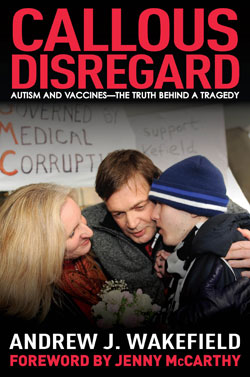
http://www.callous-disregard.com
|
Please note that I do not
agree with Dr. Horowitz bizarre religious theories and it is clear
that he is not a Biblical Christian. Albeit, his medical research is
excellent and eye-opening. You need to hear Dr. Horowitz concerning
vaccines, the medical mafia and the danger to our children...
Vaccines, by Dr. Len Horowitz
|
Download
(a frightening 121 Minute MP3 audio
presentation, 37.3 MB. Did you know that public schools receive
government money for vaccinating your child? ...Potentially
deadly vaccines that parents are NEVER made aware of or given
the option to refuse. You can LEGALLY refuse vaccinations and
Dr. Horowitz tells you how in this presentation. Dr. Horowitz'
own child was forcibly taken by the state government, you'll be
shocked why. He advises people how not to make the same
mistake. If you're a parent, you need to hear Dr. Len
Horowitz!)
Emerging Viruses, by Dr. Len Horowitz
|
Download (a frightening
204 minute MP3 audio presentation, 114 MB. Dr. Horowitz exposes
the evil conspiracy behind AIDS, Ebola, and other emerging
manmade viruses. Learn how your own government has conspired
against you. AIDS didn't just happen!)
Please
note: Len Horowitz is an unsaved false prophet,
who teaches some really bizarre religious
garbage, but he is correct about the forced
vaccines and fraud, so I wanted you to hear him
out on this issue.
|
"Advertising is a valuable economic
factor because it is the cheapest way of selling goods, particularly
if the goods are worthless." —Sinclair Lewis




NOTE:
To open the following file, you must have the Microsoft POWER POINT
program installed on your computer.
What has this world
deteriorated to?
|
All information
posted on this web site is the opinion of the author and is provided for
educational purposes only. It is not to be construed as medical advice.
Only a licensed medical doctor can legally offer medical advice in the
United States. Consult the healer of your choice for medical care and
advice. |












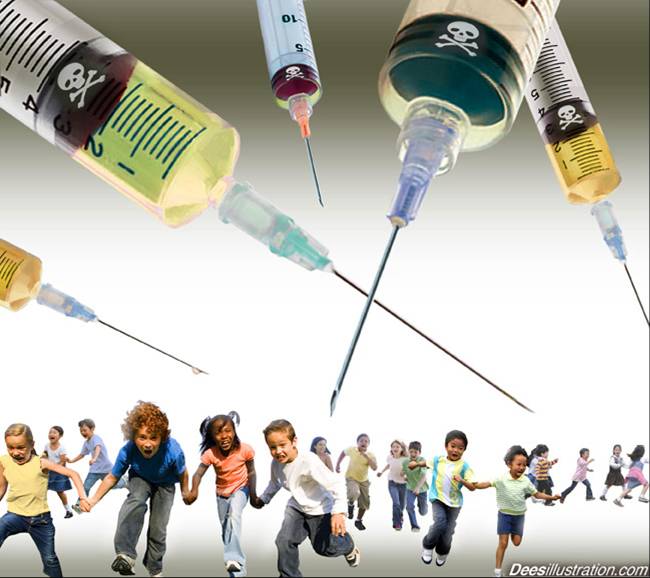
 This is taken from
Chapter XVIII of G. Edward Griffin's book,
This is taken from
Chapter XVIII of G. Edward Griffin's book,


